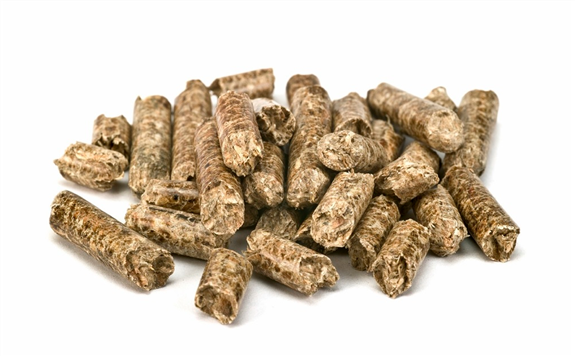The Dutch Social Economic Council (SER) in July advised the Dutch government to phase out bioenergy and instead use biomass for high value applications, according to a report filed with the USDA Foreign Agricultural Service’s Global Agricultural Information Network.

The GAIN report explains that recommendation is based on SER’s assumption that the availability of biomass is limited and that production and use is a linear activity. The European Union’s Renewable Energy Directive and many organizations, including the Intergovernmental Panel on Climate Change and the International Energy Agency, however, consider bioenergy production to be a circular activity.
The report explains that the Netherlands have set ambitious climate and emission reduction goals, aiming to reduce emissions by 95 percent and achieve a neutral and fully circular economy by 2050. The Dutch Climate Law mandated that the government draft a Climate Plan, which was published on April 1, 2020. Within that plan, the Dutch cabinet indicated that biomass is an important tool to achieve a climate natural and circular economy.
Approximately one year ago, in June 2019, the Dutch Ministry of Infrastructure and Water Management announced plans to introduce a new sustainability framework for biomass that would include requirements for all types of biomass used for all purposes, not just energy applications. The ministry asked SER to provide advice regarding the practicability of such a framework.
SER published that report on July 8 that not only provides the Dutch government on biomass sustainability, but also includes extensive recommendations for the application of biomass.
In its report, SER recommends that biomass be used for the highest value applications possible and comply with clear sustainability requirements. As part of that recommendation, SER is calling on the government to support the use of biomass in high-quality applications but phase out the lower value uses of biomass, including power and heating. High value applications described in the report include using biomass for the production of chemicals and materials, including bioplastics or biobased concrete.
During a transition to these high-value uses for biomass, the report recommends biomass could be used for energy production, but only temporarily and where no sustainable alternative is available. The report offers heavy road transport, shipping and aviation as areas where biomass would temporarily be used for energy purposes.
The SER’s report specifically calls on the Dutch government to phase out the use of biomass in heating and power applications and support the use of alternatives, such as geothermal and aqua-thermal energy, hydrogen and heat pumps for thermal applications and wind and solar for power production.
The GAIN report filed with the USDA, however, provides counterpoints to many of SER’s biomass claims. For example, while SER claims there is a limited supply of biomass, the GAIN report cites data from the IPCC, EIA, USDA, U.S. Forest Service and U.S. Department of Energy that shows the U.S. can likely supply 1 billion metric tons or more of biomass annually.
Regarding the claim that wind and solar are more cost-effective than biomass, the GAIN report points out the SER report does not quantify how the current use of bioenergy could be replaced or how the future demand for renewable energy can be fulfilled without bioenergy. The GAIN report also explains that SER’s claim that biomass is too valuable to replace fossil fuels is incorrect because biomass used to produce wood chips and pellets used in bioenergy applications is produced as a byproduct of timber production and is a material for which few other purposes exist.
While SER claims biomass is a linear activity, the GAIN report explains that forestry is clearly a circular activity and cites IEA data that shows demand for biomass from forests in the Southeast U.S. is actually decreasing the likelihood that forest land is converted for other purposes. SER’s report also claims the use of biomass is not climate neutral due to the emissions created from harvest and transport, but the GAIN report points out that REDII accounts for greenhouse gas (GHG) emissions generated during production and transport in its sustainability assessment of forest biomass.
The GAIN report also states SER’s assertion that burning wood has a negative effect on air quality is not accurate, as the Netherlands Assessment Agency has concluded that the effect of bioenergy generation on air quality is limited. The GAIN report also notes the Dutch Climate Law will enforce stricter norms for smaller bioenergy installations starting in 2022.
Finally, SER claims that burning biomass does not require innovation and will not create significant employment opportunities in the Netherlands. The GAIN report, however, stresses that several organizations, including IEA Bioenergy, have concluded that the wood pellet industry creates employment in the forestry sector, generally in rural and often economically deprived areas.